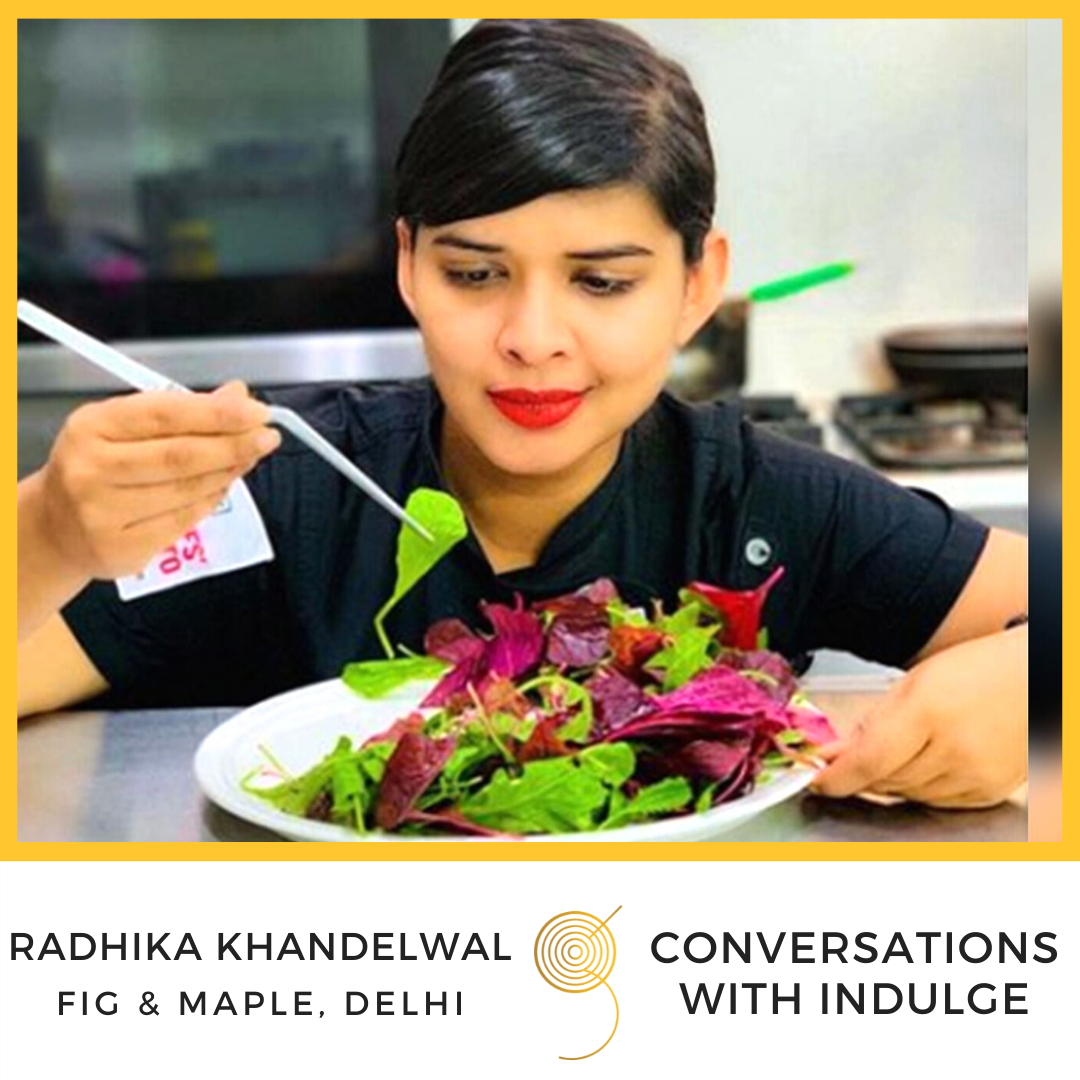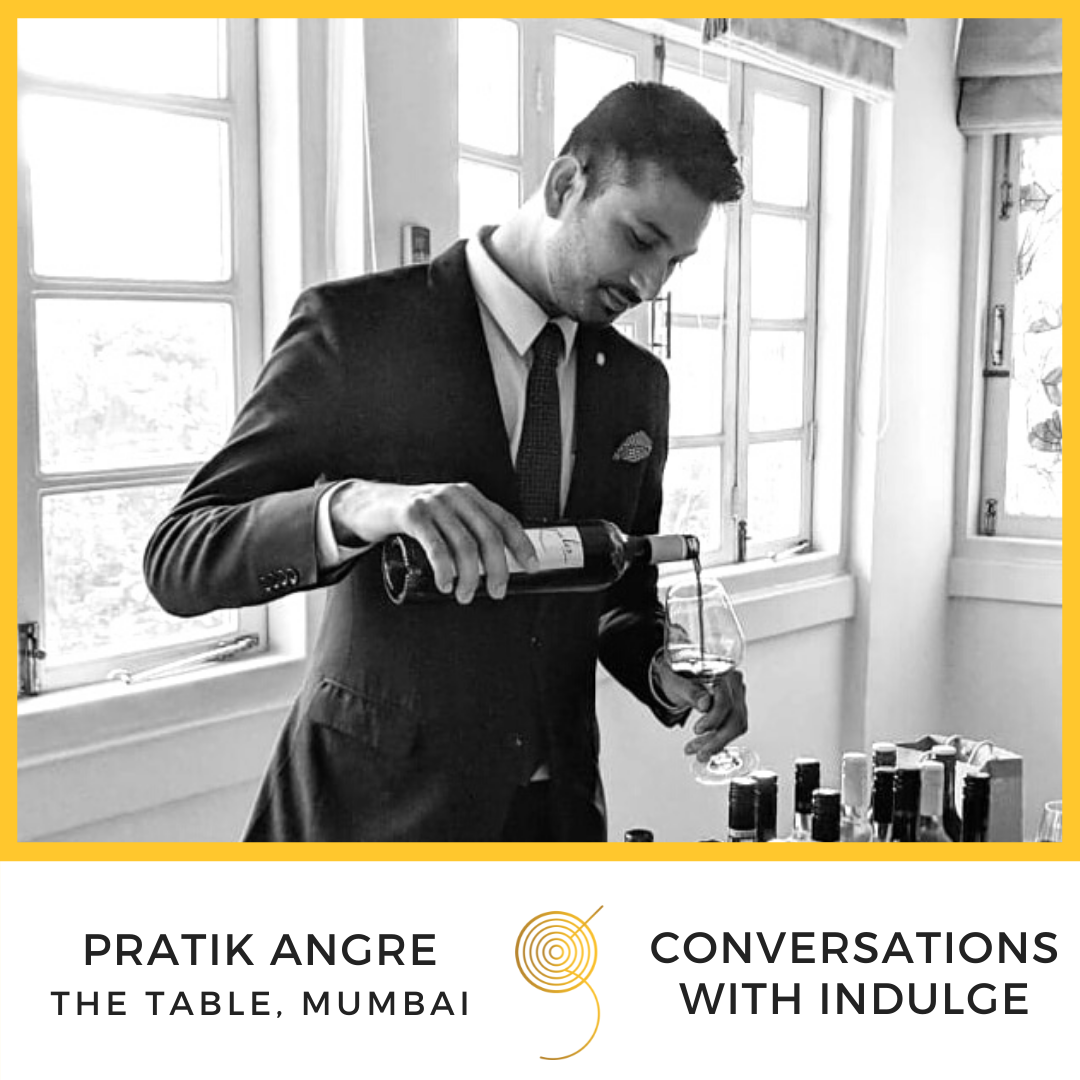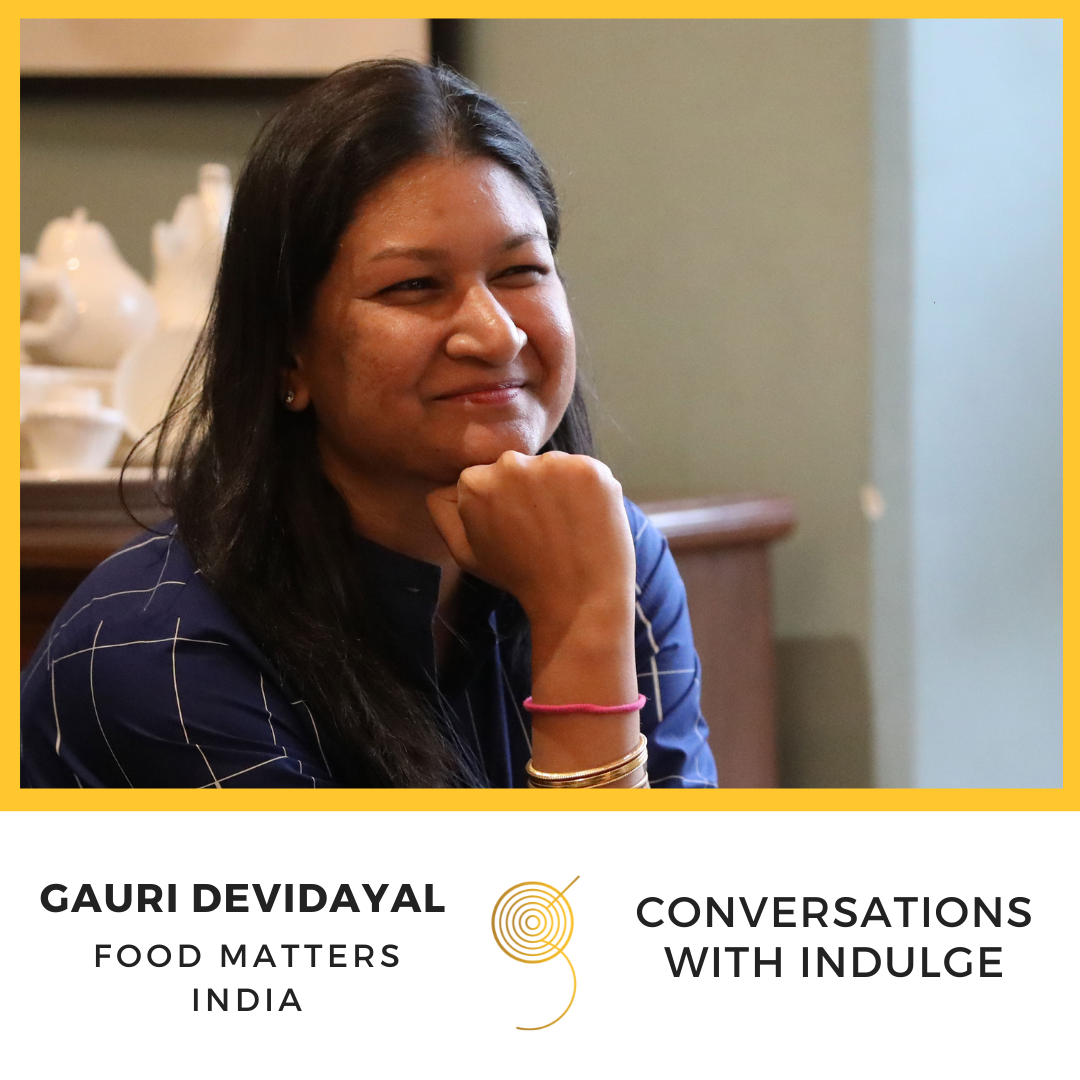Pratik Angre is known sommelier on the Mumbai circuit. From IHM Mumbai, to Taj Hotels in Pune and then to Mumbai, to making his way to chain of restaurants with Massive Restaurants, to taking over the Beverage Management role at Gauri Devidayal’s enterprise, he has worn many hats. He’s been the winner at the coveted Indian Sommelier Championship, and travelled to Austria representing the motherland.
Team INDULGE learns about the journey, experiences, and his management fundamentals…
What’s your favourite memory of serving a wine?
It was when I knew nothing about wine except for serving it.
We had a long stayer guest at Taj Blue Diamond, Pune in 2014. I was the Bar Manager then. Accompanied with his wife, he ordered a bottle of Cakebread Cellars Cabernet Sauvignon. I opened the wine and served it, and then put it in a decanter and left it on the table (that is all I knew at the time). They finished the bottle and asked for one more and I repeated the service sequence. After a while the guest called me and asked how do I buy my wine? He asked if same vintages are bought or different ones. Luckily, I knew what vintage meant at that time. I said I just place the order to purchase and asked him what was his concern. He said “I didn’t see the year on the previous wine bottle (I did not announce the wine at that time) but I think this one is a different year than the last one.” Now for someone who did not know much about wines I was curious, confused, and out of words. I straight up asked him how could he actually tell the difference between two years? He said he could because he drinks wine regularly and had visited the Cakebread Cellars in Napa Valley, U.S.
It was because of this day I started to have an extra curiosity in wines, and started reading about it a lot. I also had asked the guest what to do if I wanted to learn more about wine. This would be my favourite memory as the guest and I keep meeting every year as he travels to Mumbai often and it was this day that led me to be a Sommelier.
You’re managing the beverage programs at The Table, Miss T, and have worked with the Taj Group before. How do you design a rockstar wine program for a chain?
I think the most important thing to do when thinking of a wine program is what type of clientele does the restaurant attract and / or what clientele would you want to attract (if it’s a new restaurant).
There is no point in keeping wines which may have a great name in the world but does not suit the clientele dining at the restaurant. Also, just selecting and listing wines on the menu isn’t called a wine program. There has to be staff training, activities around wine and most important different styles of wine offerings apart from the ones listed or around the ones listed.
At Massive Restaurants, we had done a Rose wine activation across 15 restaurants with 7 different types of Rose wine by the glass to make people taste different styles. At The Table, we had a Pinot Noir week where we had 6 Pinots by the glass, from different regions . We have had Spanish wines, Tuscan wines, and Bordeaux wines by the glass, which generally are served only by the bottle. We also had a masterclass for our guests during such activations. Also, our entire staff tastes all the wines before we roll them out in an activation. Staff trainings are very important as the wines do not sell by themselves.
A good wine program comes down to what can be offered to the customer that keeps them and the staff engaged.
How has winning the Indian Sommelier Championship (ISC) changed your life?
Not only winning, even participating in the competition (I had participated in the two years before I won), made me realise how vast the wines & beverages industry is. And how our country does not have this in its culture. I saw how many more people require this exposure and training as there is a big need for wine professionals.
In fact, I got my first job as a sommelier after winning the competition. There were only 3 sommelier positions in Mumbai. Not many hotels or restaurants had the concept of a sommelier in 2016.
I had the opportunity to travel to Vienna, through the competition, and interacted with sommeliers, winemakers, writers, and attained more knowledge on how they drive the wine culture in their countries. When I returned, I joined a group where we came together for wine tastings which made people realise the importance of it. I was even invited to wine tastings, wine related events, also to judge wine competitions. This gave me a different kind exposure and helped me grow in my learning, enabling me to share more with my colleagues and others.
It was not that one moment of winning but everything that unfolded after, seeing the different layers of the industry and realising that the essence of a sommelier lies in constant learning. This competition has given rise to more individuals being interested in the wine industry and provides a platform every year for sommeliers like me to give something back and provide a little bit more of what we have learned.
What is one off-work routine you stand by?
Going for a run or a swim. I think doing these things makes your mind fresh and active.
What’s the biggest myth about drinking wine?
The biggest myth about drinking wine is the question – ‘Which is the best wine?’. I believe that if a person enjoys a particular wine, that is their best. People should go and just explore, and not look at it as a serious or intimidating task. Go buy and try a new wine with your friends, and if you don’t like it at least you know which one not to buy next time. The best wine is the one you share and truly enjoy in the company of your loved ones.
If given a free ticket, which wine region you want to travel to?
California would definitely be the first location to come to mind. I love Californian wines and I have been obsessed with California since my teens, because of the 80s & 90s rock bands. I feel that California is becoming a very progressive wine region by making different styles of wine and experimenting with grape varieties. It holds a lot of history – the Judgement of Paris, 1976, a historic event when Californian wines beat French wine in a blind tasting which brought them on the world map. Napa Cabernet Sauvignon, Russian River Valley Pinot Noir & Fume Blanc styles are my favourite.
What’s your favourite tipple at the end of a busy day?
Its always been Old Monk and Coke (mostly because I can afford it). More recently it has been Mezcal and Tequila that has caught my interest. I also try using different flavoured tonics. Mezcal with Grapefruit and Tequila with Elderflower is what I feel goes well together.
What is your advice to young professionals seeking a career in this field?
If you are borderline crazy, welcome to the F&B industry! Jokes apart, there needs to be passion and obsession for your work and knowledge as there is no grey area. You need to dive in and keep learning, because the more you learn the more you realise how much you do not know. Stay hungry for knowledge, always!
Apart from mastering wines, what other skills must a sommelier possess?
A sommelier’s skill set is not only restricted to mastering wines, but also to possess a complete knowledge of all foods and beverages in general. The most important skill a sommelier should have is people skills, to be able to share stories with guests and be able to perceive the guest’s choice through conversation, and also to be able to share his knowledge and ideas on wines with his colleagues.
Lastly, a sommelier should build trust with guests, and also bring in some humour.









